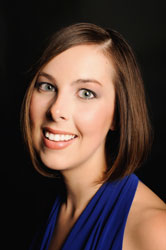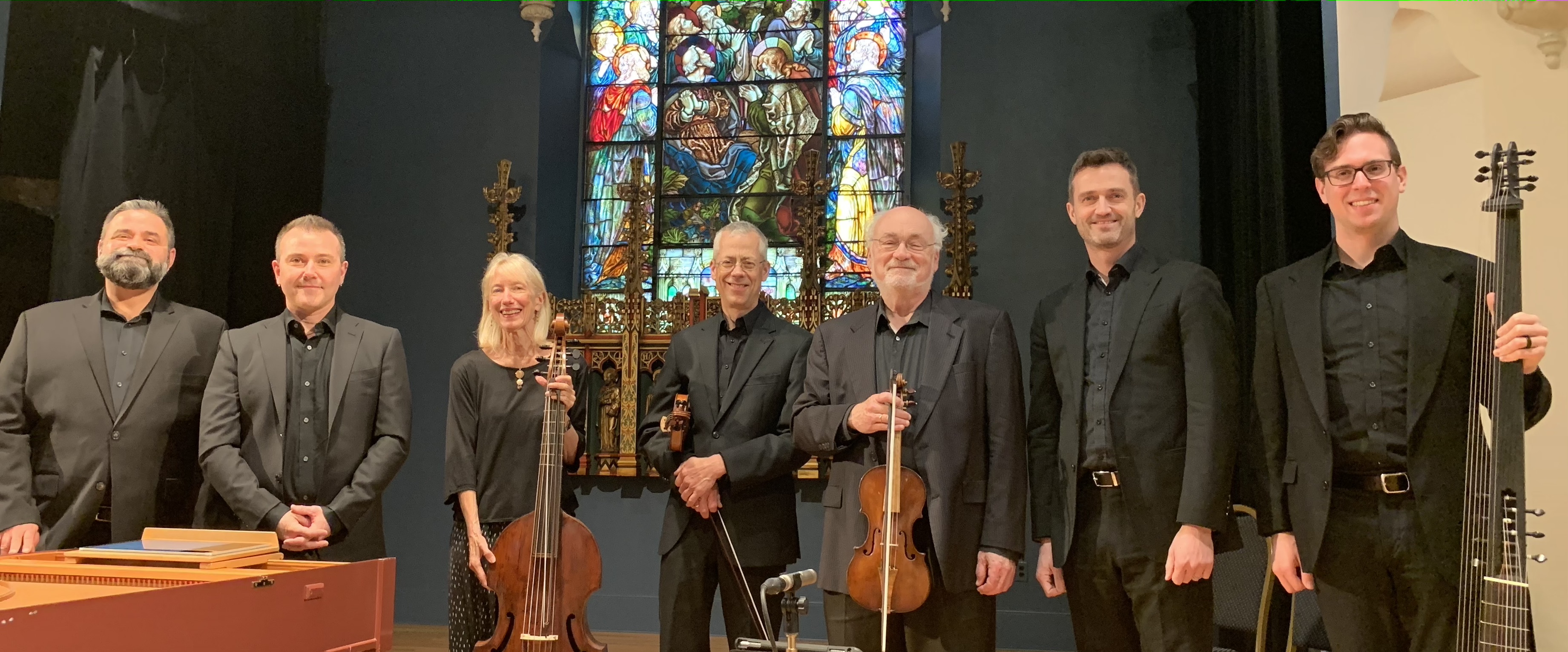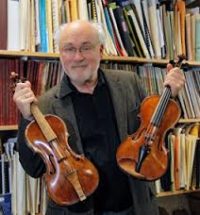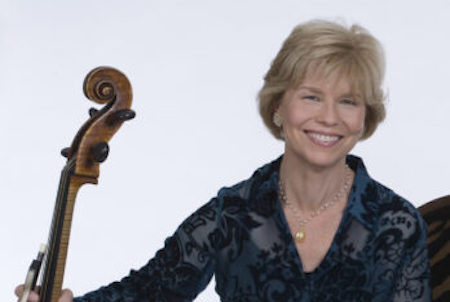
Kristen Watson, soprano, acclaimed for her “winning stage presence” and her “blithe and silvery” tone, has graciously stepped in this weekend for soprano Dominique Labelle, who is unable to participate in our presentation of Bach, Pachelbel and Villa Lobos. We send our warmest wishes to Dominique, a gifted Aston Magna guest who appears with us each year, but are fortunate that Kristen has made herself avaiable to fill Dominique’s role–with equal passion and talent.
Kristen’s soaring musical gifts–and her passion for Baroque–are on evidence regularly in her work with Emmanuel Music in Boston, a program of the historic Emmanuel Church. Emmanuel’s own “Musician’s Spotlight” tells Kristen’s story of finding her voice, and we are happy to share it here, and below,(courtesy of Emmanuel Music) in advance of our exciting weekend at Brandeis’ Slosberg Music Center, Hudson Hall in Hudson, N.Y., and at Saint James Place in the Berkshires.
Musician’s Spotlight (courtesy Emmanuel Music)
Soprano Kristen Watson hit a high point in her career with Emmanuel Music last spring when she sang the role of Anne Trulove in Emmanuel Music’s performance of Stravinsky’s The Rake’s Progress. The audience was wildly enthusiastic about a performance that was dramatically as well as musically compelling. Artistic Director Ryan Turner broke with past practice in presenting concert operas – the soloists memorized their parts and engaged with each other in character as they could not if singing from their scores.
“It was a dream to play Anne Trulove,” says Watson. “The role was both musically and dramatically challenging because the score is substantial, the music is complex, and on top of all of that you have to continually justify Anne’s main objective throughout the thread of the story, which is to remain faithful towards Tom Rakewell no matter what the cost. For me, Anne’s famous aria, ‘No word from Tom’, is one of the most satisfying pieces to perform in all of the soprano repertoire.”
Watson’s varied background helped her prepare for the role. She’s grateful that she took piano lessons as a child, because she can learn a part more quickly by playing it on the piano. And her background in both classical voice and musical theater taught her how to use the right combination of skills to concentrate on both the technical aspects of singing the vocal line while simultaneously making the role of Anne Trulove come alive theatrically.
Watson also credits others for her success in this role. Voice teacher Brett Johnson helped her to find the essence of Anne’s voice. Coaches Bill Merrill and Dan Wyneken assisted in shaping the details. Fellow soloist baritone David Kravitz mapped out entrances and exits in ways that made the piece come alive. And conductor Ryan Turner expertly tied everything together, navigating through the score with well-informed tempos, making efficient use of time with a limited rehearsal schedule, and creating an effective and easygoing collaboration between the soloists and orchestra. The end result was a concert opera – not even semi-staged – where Watson and the other leads were praised for crisp characterizations that captured the essence of the drama with minimal but telling strokes.
Both singing and acting come naturally to Watson. She got a Bachelor’s degree in Vocal Performance at Carnegie Mellon because it was top-ranked for fine arts as well as musical theater and drama. Watson was then equally focused on classical music and musical theater. “It was hard to choose between them because I love both,” Watson says. “I ultimately ended up focusing more on classical music because it is more of a challenge musically and has an aesthetic I would miss.”
Watson came to Boston in 2001 to get her Master’s degree from Boston University, and has since made a successful career singing for most of Boston’s classical music ensembles. “I felt that the strong presence of Baroque and early music in Boston would be a good fit for my voice, and that’s why I chose to study here.” She auditioned for the chorus roster of the Handel and Haydn Society and sang her first concert at Symphony Hall in the fall of 2001. From there Watson met Martin Pearlman at BU and started performing with Boston Baroque in 2002; singing with Emmanuel Music soon followed. And, having performed several operas at BU’s Opera Institute, she has also appeared with Opera Boston and Boston Lyric Opera.
Watson first came to Emmanuel Music as a substitute for Gail Abbey, a fellow soprano she’d met in the choruses of Handel and Haydn and Boston Baroque. “I had auditioned for Craig Smith back in 2003, and later that year Gail had recommended me to sub for her at a Sunday morning service. I jumped at the chance and it paid off – within a year I was a regular.” The support network that helped Watson get her foot in the door is part of the Emmanuel Music culture. “Over the last couple of years we’ve had a sopranos’ pot-luck lunch,” Watson explains. “It’s fun to get together as a group this way and it’s possible because of the continuity and relationships we create by singing together so often each year. With most groups you rehearse for a week, perform a concert, and break up. But at Emmanuel Music we’re together singing cantatas all the time. And the sopranos don’t just spend the lunch hour talking about music or Bach – the topics range anywhere from shoe sales to racquetball!”
In her early days at Emmanuel Music, Watson was launching her career and supporting herself with other jobs as well. She spent a summer as an interim bookkeeper for Emmanuel Church, a job that gave her the chance to fill in as a sexton from time to time. “It was funny to be mopping the church floor one night and putting on a gown to sing the next day,” Watson says. “But I was glad to do whatever it took to get my career off the ground.”
Today, with seven years’ experience singing with Emmanuel Music, Watson remains a relative newcomer in an ensemble where some performers have appeared for decades. “But I feel as much a part of the Emmanuel Music family as anyone,” she says. The family feeling in part explains the successful transition under new Artistic Director Ryan Turner. “It feels like a seamless transition because Ryan was part of the family,” Watson says. “It’s great how everyone responds to him, how he brings an energy that keeps everyone engaged and yet at ease.”
Today Watson’s singing career is wide-ranging. She occasionally finds time for her musical theater and pops background. She will perform in a holiday pops program this December with the Melrose Symphony Orchestra and has kept her Equity card so she can audition for musicals when her schedule permits. In fact, Watson last appeared in a production of Carousel (as Carrie) with the Reagle Players in Waltham that featured the original lead Shirley Jones in the role of Aunt Nettie.
Baroque music remains a core repertoire for Watson. She recently formed a Baroque vocal duo, Les Sirènes, with soprano Kathryn Mueller; Emmanuel Music harpsichordist Michael Sponseller and cellist Cora Swenson are the instrumentalists. “Having your own group where you can maintain absolute creative control is a new luxury for me, in a career where I’m usually contracted to sing repertoire that’s already been chosen for me. It’s been really satisfying to put together programs that consist solely of the music I really want to perform.” They recently gave a concert in tandem with Sarasa Chamber Music in Cambridge MA, Concord, MA, and Brattleboro VT, and will perform next January in the Concerts at One series at Trinity Wall Street church in New York City.
And Watson will continue to perform in Boston. At Emmanuel Music she will sing many of the Sunday Bach cantatas and will be part of the “chorus of soloists” performing Mozart’s La Clemenza di Tito. Whether in the foreground or the background, Kristen Watson is one the musicians who give the ensemble its unique sound and exquisite musicality.




